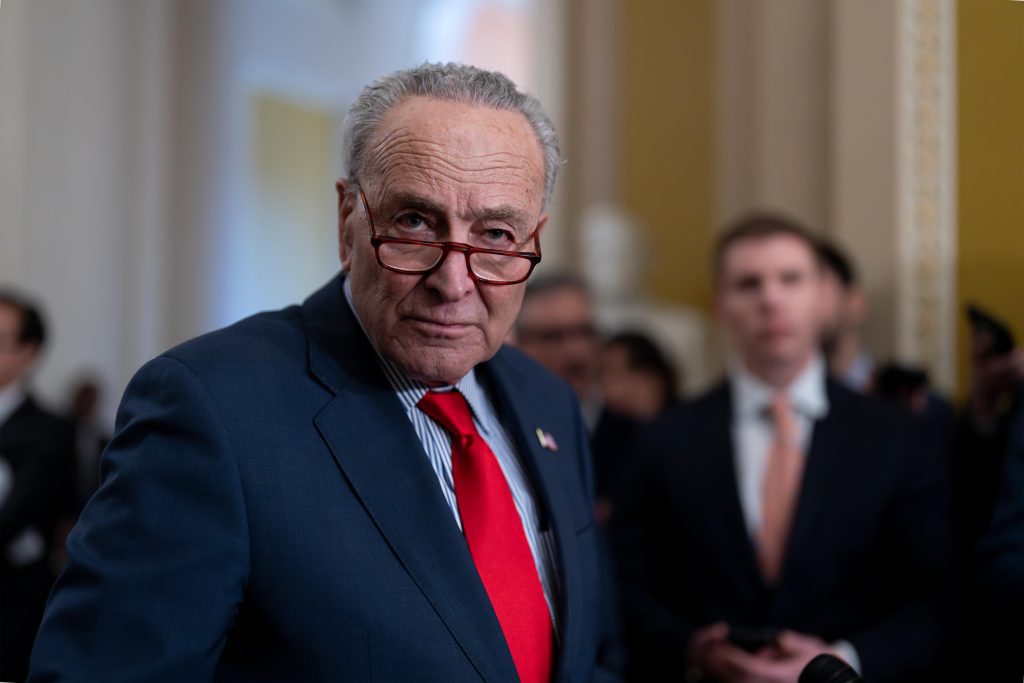By KEVIN FREKING (Associated Press)
WASHINGTON (AP) — President Joe Biden and congressional leaders said on Tuesday that they have come to a decision on the last set of spending bills for this fiscal year. The main concern now is how quickly lawmakers can pass the bills to prevent a partial government shutdown.
Biden mentioned that he will sign the bill package as soon as he gets it, but time is running out. The legislative staff needs time to finalize the bill text, which is a complex task. The House rule gives lawmakers 72 hours to review a bill before voting, and the Senate is not known for acting quickly. At the same time, funding for several important agencies will run out at midnight on Friday.
“We have reached an agreement with Congressional leaders on a way forward for the remaining full-year funding bills,” said Biden, a Democrat, in a statement on Tuesday morning. “The House and Senate are now working to finalize a package that can quickly be brought to the floor, and I will sign it immediately.”
Work on the final spending bills faced a delay regarding funding for the Department of Homeland Security, but the main points of that bill were resolved late on Monday. Speaker Mike Johnson, R-La., mentioned that the relevant committees are now preparing the bill text to be considered by the full House and Senate “as soon as possible.” Democratic leader Hakeem Jeffries, of New York, issued a similar statement, saying “in the next few days, upon completion of the drafting process,” Congress would consider the package.
This action comes almost six months into the fiscal year, with Congress only halfway through passing spending measures that are expected to total about $1.65 trillion. Lawmakers passed the first part of the spending bills in early March, which accounted for about 30% of discretionary spending for the year. Now lawmakers are concentrating on the larger package and, as has become customary, are running up against a shutdown deadline.
The package is expected to allocate around $886 billion for the Pentagon. It will also fund the departments of Health and Human Services, Labor, and others.
Overall, the two spending packages will provide about a 3% increase for defense, while maintaining nondefense spending at a level similar to the previous year. This is in line with an agreement that former Speaker Kevin McCarthy reached with the White House, which limited spending for two years and postponed the debt ceiling until January 2025, allowing the federal government to continue paying its bills.
House Republicans have been determined to stop the practice of combining all 12 annual spending bills into one large bill known as an omnibus. This time, they managed to split the spending bills into two parts.
With the potential release of the legislative text late on Tuesday, because of the House’s 72-hour rule, the chamber would not consider it until late on Friday, just hours before funding runs out. Johnson would then probably need to bring the bill up through an expedited process requiring two-thirds support to pass.
Most of the expected “no” votes will come from Republicans, who have criticized the overall spending levels as well as the absence of policy mandates sought by some conservatives, such as limiting abortion access, ending diversity and inclusion programs within federal agencies, and prohibiting gender-affirming care.
Then, the Senate would take action on the bill, but it would need all senators to agree on expediting the process to reach a final vote before the midnight Friday deadline. Such agreements generally require Senate Majority Leader Chuck Schumer, D-N.Y., to allow votes on various amendments to the bill in exchange for a faster final vote. Schumer said Tuesday he was optimistic about avoiding a pause in government services.
“We haven’t had a government shutdown since 2019. There’s no good reason for us to have one this week now that we’re getting very close to finishing the job,” Schumer said.
One part of the bill would allocate 12,000 special immigrant visas for eligible Afghans who assisted Americans despite significant personal risk to themselves and their families during approximately two decades of conflict in Afghanistan. Without congressional action, the State Department could exhaust such visas by the end of summer, putting thousands of Afghans seeking safety in the U.S. in danger.
The announcement was well-received by advocacy groups. Shawn VanDiver, a Navy veteran and head of #AfghanEvac, a coalition supporting efforts to resettle Afghans, called it an “unequivocal win” if the legislation is ultimately passed.
“While this won’t be enough visas to help all our Afghan allies, this gives us some breathing room and will show our partners in America’s longest war that we won’t leave them behind,” VanDiver said.
___









